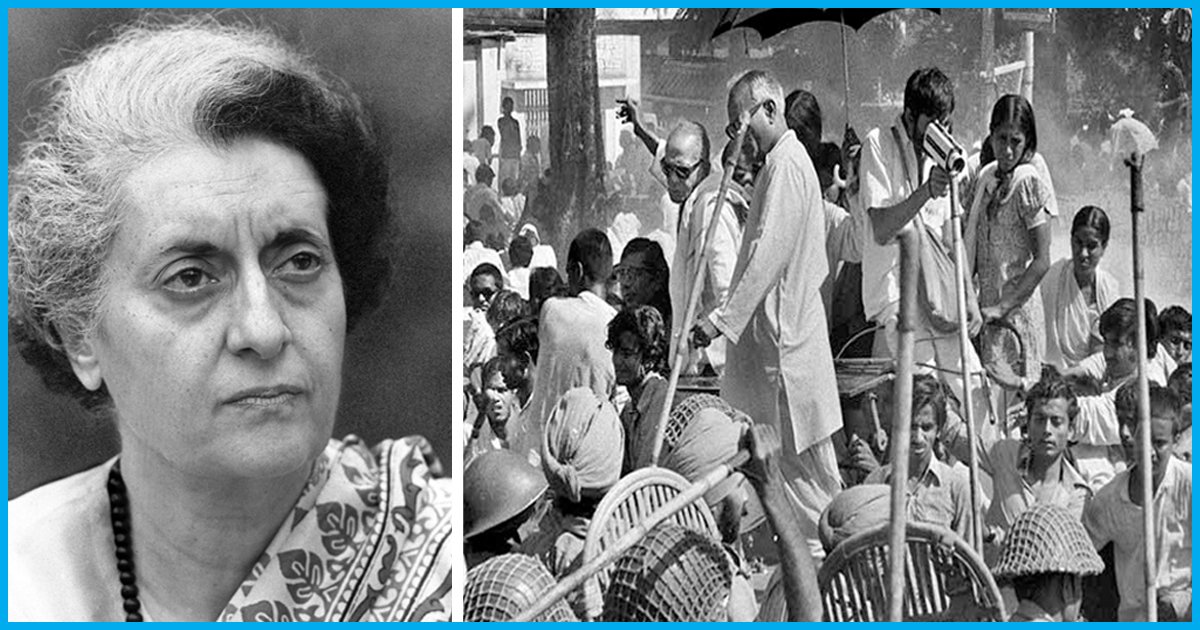The decision of Justice Iyer was seen as an attempt by him to help Indira Gandhi come out of her predicament
 KRC TIMES Desk
KRC TIMES Desk

Kumar Chellappan
Vinashakale Viparith Budhi (Sanskrit for ‘as doom approaches mind reverses’) is what Lok Nayak Jayaprakash Narayan told his friends when he was arrested and was being led off by the cops on 25th June 1975 after the proclamation of internal emergency across the nation by the then Prime Minister Indira Gandhi.
Even members of her cabinet came to know about the proclamation of emergency from the next day’s newspapers and the Akashwani bulletins.Jagmohan Lal Sinha, a judge of Allahabad High Court heard the election petition filed by socialist party leader Raj Narayan against Indira Gandhi alleging that she had violated all rules specified in the statute book while fighting the 1971 Lok Sabha election from Rae Barelli.
There was a nationwide belief among the leaders of the opposition parties that chemically treated ballot papers were used in the election. These ballot papers were supplied by the then USSR and they bore the symbol of Congress(Indira) but remained invisible at the time of voting.
It was said that the voter’s original mark would disappear after voting, and the Congress mark would appear. (Ref: Courting Destiny, A Memoir by Shanti Bhushan, who appeared for Raj Narayan in the case). But Shanti Bhushan decided not to go ahead with the charge of the fake ballot paper and preferred the allegation that Indira had misused government machinery in fighting the poll.
The court was convinced of the charge that she had misused her position and power while fighting the poll. Justice Sinha set aside Indira’s election and disqualified her for six years. But Sinha stayed his judgment to enable Indira Gandhi to appeal to the Supreme Court. Shanti Bhushan says in his memoirs that there had been several precedents before in which the election of sitting chief ministers had been set aside and they stood disqualified for the commission of corrupt practices and the Courts had never granted a stay to them during the pendency of their appeals.
V R Krishna Iyer, the vacation judge of the Supreme Court who heard Indira Gandhi’s appeal challenging the High Court verdict ruled that she could continue as Prime Minister though she was not permitted to her exercise her right to vote in Parliament. The decision of Justice Iyer was seen as an attempt by him to help Indira Gandhi come out of her predicament.

Iyer was known for her servility to the then Prime Minister, having served as minister of home and jail in the first elected Communist government in Kerala under E M S Namboodirippadu. In his autobiography “Wandering in Many Worlds’ Iyer has disclosed how EMS was instrumental in getting him appointed as a judge in Kerala High Court.
The Communist infiltration of the Indian judiciary and other constitutional establishments is nothing new.Immediately after the proclamation of the emergency, the Constitution was amended by both houses of Parliament to put the election of the Prime Minister and President of India beyond the powers of Courts with retrospective effect.
This was the infamous 39th Amendment of the Constitution (which was later declared unconstitutional by the Supreme Court). What happened during the Emergency is known to most of the literate people. State Governments not friendly to the Centre were summarily dismissed making use of the provisions under Article 356 of the Constitution.
Press Censorship was imposed which made newspapers get prior sanction from censoring officers to publish news. To date, India has not experienced the kind of dictatorship that was in force during the days of internal emergency. The Constitution was distorted and misinterpreted while Courts of law were sterilized. The Preamble of the Constitution itself was amended unconstitutionally and terms like Socialism, secularism and unity of the Nation were inserted in it.
This was done after putting all opposition members of parliament in prison under the DIR (Defense of India Rule 1962) and the Maintenance of Internal Security Act 1974, the statutes that gave power to the government to jail anyone daring to question Indira Gandhi’s superiority. Lalu Prasad Yadav named his daughter Misa Bharati to commemorate his arrest under the said Act during the emergency.
Now Lalu and his family members are singing a paean to the Nehru-Gandhi clan!Indira Gandhi and the Congress failed to learn anything from the drubbing they got for subverting the Constitution. In 1984, the Congress again derailed people’s mandate by getting the N T Rama Rao-led TDP government in Andhra Pradesh dismissed and anointing a faction led by Bhaskara Rao as chief minister.

But NTR succeeded in getting his chair back thanks to the initiative by the opposition parties that included Janata Party, BJP and anti-Indira forces.
Rajiv Gandhi during his tenure as Prime Minister tried in vain to muzzle the media by attempting to enact a legislation “Defamation Bill” to curb any kind of reports against the Government. This had to be dropped midway through due to massive protests against the same.
One has lost count of the number of times State governments were dismissed by the Congress-led Government at the Centre misusing the provisions of the Constitutions. B R Ambedkar, the architect of the Constitution, was against the terms socialism and secularism for obvious reasons.
Though we claim in the preamble of the Constitution that it was adopted on 26th November 1949, what we cover-up is the date on which it was amended by including the terms socialism and secularism in 1976. Congress pontificating the Constitution could be described as the devil quoting the scripture.
(The writer is a special correspondent with The Pioneer; views are personal)


